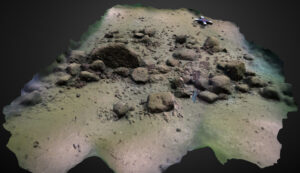An 1000-year-old woman skeleton found buried in a canoe in southern Argentina, has revealed the first evidence of a prehistoric burial there. The study, which was published in the open-access journal PLOS ONE, describes the group’s research.

The remains were found at Newen Antug, a dig site on Lacár Lake in western Argentina. The woman was between 17 and 25 years old when she died, but the researchers were not able to determine the cause of death. A jug was positioned near her head, and she was surrounded by almost 600 fragments of Chilean cedar wood; there were likewise indicators that the wood had been burnt.
The remains were from around 1142 AD and belonged to the Mapuche culture, indicating that they lived and died before the Spanish invaded. Mapuche people hollowed out wooden canoes using fire. Testing of her bone fragments revealed that she was a member of the Mapuche culture and lived and died before the Spanish invaded.
The finding is the first time an Argentinean Patagonian canoe burial has been observed, and it is a truly rare discovery—most canoe burials were for men. The researchers speculate that their discovery indicates that the practice might have been more common than previously thought.

It has been suggested that burying people in a canoe was part of a ritual that allowed the deceased to make a final voyage across mystical water to the destination of souls, a land known as Nomelafken.
The archaeologists believe that she was buried in a canoe, and that a freshwater clam bed was used as a funeral bed. The jug was placed next to her head, indicating that whoever buried her was familiar with the burial custom.



